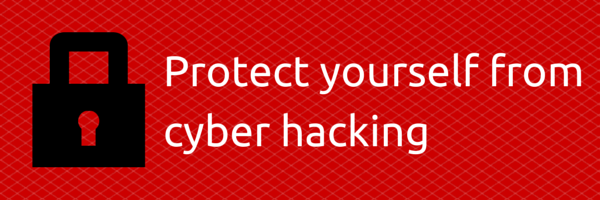
Don’t Get Hacked Like Sony
By now, you have probably heard about the infamous cyber attack on Sony Pictures Entertainment that took place on November 24, 2014. The hackers stole terabytes of private information and permanently deleted original documents on Sony computers. Further damage was done to Sony when the hackers released all of their private information online and posted five movies, four of which had yet to be released to the public.
Sony suffered major losses by not protecting themselves and not too long ago, major retailer Target was also under attack when hackers stole millions of personal account numbers used during purchasing transactions! All businesses, whether big or small, can be targeted by hackers. However, there are some simple guidelines you can incorporate in your business to strengthen your cyber security and save yourself from major losses.
Educate your Employees!
Establish a written security policy and educate your employees on these policies. Employees must know what information is sensitive and which websites to avoid. Remind them of this simple rule: Do not download or open attachments from people or sites you do not know!
An easy way to steal information is through phishing emails– an attempt to obtain sensitive information such as passwords, usernames, and even credit card information. A simple way to identify a phishing email is by routinely hovering over the “From” portion of the email. You should be able to recognize the domain name immediately. For example, an email from eBay should read “ebay.com” and not “ebay@soandso.com”. Here are a few more tips on how to recognize and avoid phishing emails.
Firewall Protection
A firewall is simply a program or hardware that can filter traffic and protect your network against any malicious activity. It is the foundation of a strong cyberspace security system. On countless occasions, employees visit sites that they are not familiar with and some of these sites have sophisticated methods of stealing your information. An effective firewall will protect your business from the spread of hacking activity, and this is especially true for larger companies that employ many people. As a good practice, you should still only visit sites that you trust and make sure your employees do the same.
Back up, Back up, Back up….
I’m sure you’ve heard this many times, but it cannot be stressed enough. Back up all of your information! Operating systems and applications can be reinstalled and recovered easily, but original files are nearly impossible to recover once erased. Sony lost so much information simply because they did not have a backup server. Hackers are relentless, and will not stop until they have completely destroyed their victims.
What many businesses don’t know is that you do not have to spend a fortune on a separate server; there are so many free secured applications to use such as Google Drive and Drop-Box. Using these programs is also a great way to access information from any computer. All you need is your log-in information, and this brings me to my next point: passwords.
123abc is Not a Secure Password
Weak passwords will crumble your business, so if you think “princess123” or a birthday is a secure password, it’s not. The best way to create a strong secure password is to follow these steps for every single account:
- Use a different password for each account
- Always use special characters: @ # $ % !
- Always use numbers
- Add upper case and lower case letters
- Your passwords should be gibberish – avoid real words: ShkR%a@09Bao!#
Keeping track of all your gibberish passwords can become incredibly difficult, but you can easily create an Excel sheet in Google Drive or drop the file in Dropbox to keep a record of all your passwords. As another good practice, it is always good to change your passwords every 3-4 months.
Protect your Business Now… Not Later
Small businesses are just as tapped into cyberspace as large ones. We sometimes forget how easy it is to gain information online. Sony was unprepared and must now face the consequences, but hopefully this will be a wake-up call to all businesses out there to invest now in cyber security before they are left cleaning up the mess.
For more information on how to protect your company from cyber hacking, contact us today.



